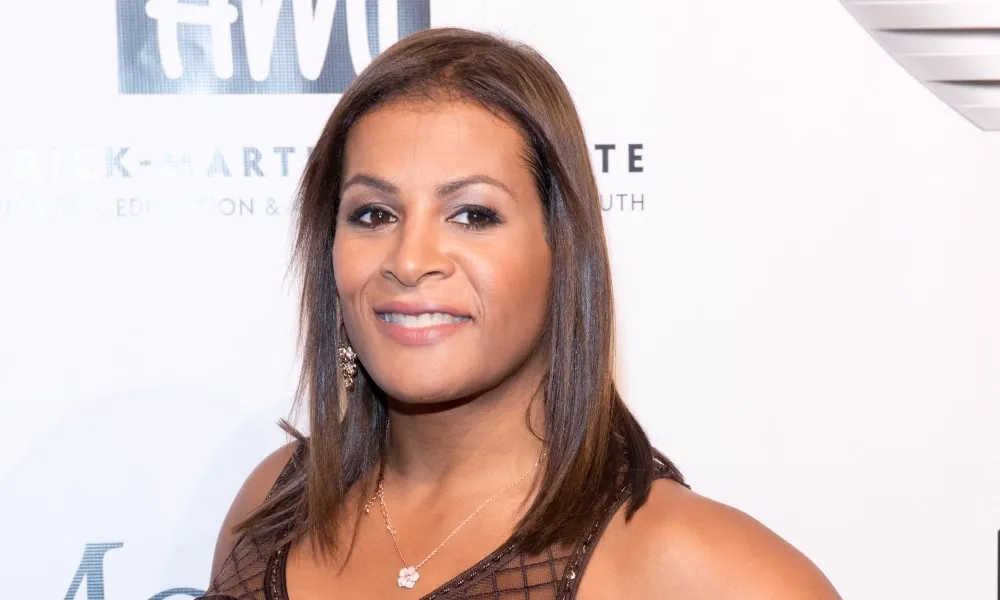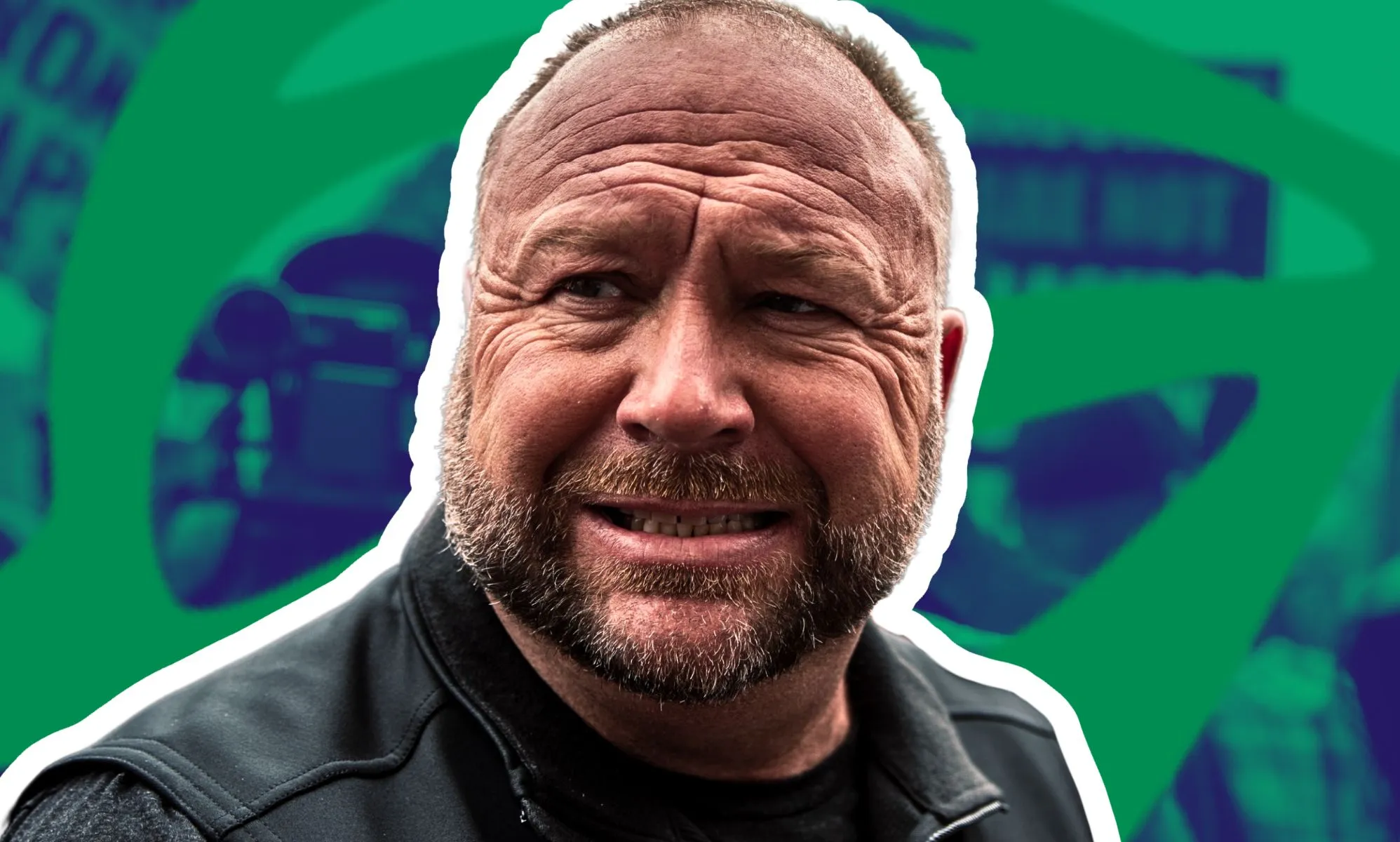Trans athlete Fallon Fox blasts ‘transphobic’ BBC after it apologises for platforming her
Fallon Fox, a venerable mixed martial arts fighter, has accused the British press of having a ‘transphobia’ problem. (Rob Kim/Getty Images)
Fallon Fox has condemned the “transphobic” British press after the BBC apologised for platforming her on a discussion about anti-trans sports bans.
Fox, an American retired mixed martial artist, appeared on BBC Radio 4’s Today programme in June to discuss the world governing body of swimming effectively banning trans women from the highest levels of women’s international competition.
But Fair Play for Women, an anti-trans sports pressure group, took issue with this. “Fox never should have been booked and an on-air apology is required,” the group said in a letter to BBC bosses, according to The Telegraph.
Fair Play for Women cited a 2020 tweet from Fox, 46, in its complaint. The tweet concerned Ericka Newsome and Tamikka Brents, both MNA fighters who said Fox should not be able to compete against cis women.
What was @BBCRadio4 @BBCr4today thinking by inviting trans fighter Fallon Fox onto the show to talk about FINAs new trans policy for womens swimming .
Fox is on record saying “I enjoyed” fracturing a woman’s skull and “I love smacking up terfs’ @NadineDorries @JustinOnWeb https://t.co/ONbO561EC6 pic.twitter.com/M4S7IjeQFT
— FairPlayForWomen (@fairplaywomen) June 21, 2022
Both lost to Fox when they did face off against one another in the octagon. Fox tweeted of the matches at the time in June 2020: “For the record, I knocked two out. One woman’s skull was fractured, the other not.
“And just so you know, I enjoyed it. See I love smacking up TERFs in the case who talk transphobic nonsense.”
In an email shared by Fair Pay for Women on 12 July, the BBC’s Complaints Unit said it was “unaware of previous comments made by Fallon Fox” and, if it was, “we would have conducted the interview differently.”
BBC apologises for interviewing Fallon Fox about women’s sport policy on Radio 4 Today programme.
“We were unaware of previous comments made by Fallon Fox in 2020. Had we been aware of those comments in advance we would have conducted the interview differently” pic.twitter.com/stcjOqYyWO
— FairPlayForWomen (@fairplaywomen) July 12, 2022
The team added in an email: “We have discussed your concerns with the team responsible and we’d like to apologise for this oversight.”
Fox, whose last bout in the cage was in 2014, blasted the BBC for apologising for having her on as she vowed to never speak to a British news outlet again.
After all, multiple British outlets described Fox’s remarks as her “boasting about hitting women” – a wording that Fox hit back against.
She told PinkNews: “I find the apology from BBC Radio 4 to the TERFs at Fair Play for Women to be despicable. In my original statement, I was clearly referring to consensual fights in MMA with other female fighters.”
TERF is an acronym that stands for ‘trans-exclusionary radical feminist’.
Fallon Fox vows to never speak to the ‘transphobic’ British media again
Fox has long stressed that, no, she didn’t break Brents’ skull. During the fight, she fractured Brents’ orbital bone – the third most common injury in MMA. She has never broken a person’s skull, yet Fox’s anti-trans opponents have continued to say just that, Fox told PinkNews.
“Fights where both opponents punch, kick, and choke each other out. I don’t know what they think we do in the sport of MMA but it’s not tiddlywinks,” Fox said.
“And talking trash about opponents is all an accepted part of the MMA culture. It’s just when I talk trash I get singled out because I am a woman who is trans.”
A study in the Journal of Sports Science and Medicine found that MMA fights have a high rate of injury, with a majority of recorded injuries being to the face.
Fox, who publicly came out as trans in 2013, said she found it “odd” that the BBC apologised for inviting her onto the programme. “Especially since they platformed Lily Cade who called for my actual lynching,” she stressed.
Cade, a lesbian porn star, was platformed by the BBC for an infamous article headlined: “We’re being pressured into sex by some trans women.”
It was an article that the BBC would later admit fell below the broadcaster’s own editorial standards. Among the reasons why being how BBC journalist Caroline Lowbridge interviewed Cade for the story – Cade once called for the “execution” of every trans woman and for the “lynching” of Fox.

The BBC later removed Cade’s remarks from the article.
So Fox said she felt stung by the BBC “apologising” for platforming one of the most prominent trans people in professional sport, yet never quite offering the same to the trans community for promoting someone “instigating actual real-world violence”.
“Where’s our apology that is actually warranted?” she asked. “We will likely never hear one because the BBC is transphobic and aligning itself with TERFs. And if they don’t like being called transphobic, they can show they are not by issuing an apology.”
Fox placed the BBC as just the latest in a long legacy of British news outlets cranking the anti-trans dial-up to full blast even though Britain isn’t even divided over trans rights.
Between 2010 and 2020, news stories about trans people rose by 400 per cent, with many being “heated” in nature, regulator the Independent Press Standards Organisation found.
Often complex questions about the rights of trans folk are boiled down to soundbites by journalists, researchers say, with the print media turning trans people into “freak shows”. This is often because journalists take harmful “myths” about trans people as assumed fact, such as trans people being “new”, monitoring group Trans Media Watch say.
The BBC especially has been accused of this. Several demonstrations have been held by trans rights campaigners outside the BBC’s offices in London, Manchester and more in what was a show of the pent-up anger some feel about the BBC’s spotty track record of covering LGBTQ+ people.
This avalanche of anti-trans news can have real-world effects. One study found of the 97.6 per cent of trans people who have seen negative coverage of trans people in the media in the past 12 months, they were 18 per cent more likely to be depressed.
“There is a major transphobia problem in British media, and on TERF island in general I have found,” Fox warned.
“I won’t say I will never give another interview to British media. But I will say I will never do another BBC interview again.”
PinkNews contacted the BBC for comment.






